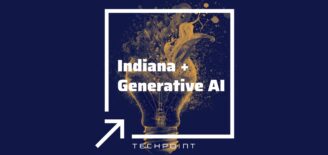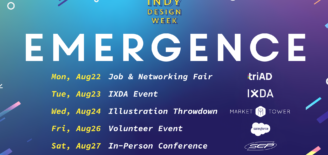Content Intelligence: The secret formula to your content strategy
Indianapolis has transformed before our eyes by becoming one of the hottest tech capitals in the country. With competitors popping up left and right and with 18 privately-held Indiana tech and tech-enabled companies recognized on the 2019 Inc. 5000 list, now is a crucial time for Hoosier tech businesses to ensure they stand out from their competition.
Digital content is often the first and most important battleground for tech companies seeking to “woo” business buyers and consumers alike. Prospective customers across all industries expect to learn most of what they need to know before making purchasing decisions by going online. And in MarTech, we know the importance and value of having great content to achieve our businesses growth goals. But great content does not grow on trees. That’s why it’s imperative to have a solid content marketing strategy in place for your business.
As the tech metropolis takes over Indianapolis with 20% of new and retained jobs in 2018 involving the technology industry, we’re seeing more marketers implement a smart content planning process and adopt technology with artificial intelligence (AI) to curate the right content for the right people at the right time.
New tools – referred to collectively as content intelligence – can take the guesswork out of content planning by making recommendations for a content strategy based on multiple data sources.
But what does this mean for your content strategy? We know that the modern marketer has access to multiple data points. If we had to name the “Big 5” they might be:
- CRM (e.g., Salesforce, MS Dynamics, or Sugar)
- Search data (e.g., SEMRush, Google Ads, and other paid and organic SEO tools)
- Website traffic (e.g., Google Analytics)
- Marketing campaign analytics (e.g., HubSpot, Marketo, or Pardot)
- Social listening (e.g., Hootsuite, Sprout, Buzzsumo, or Sprinklr)
These data are a treasure. However, it can feel overwhelming to think about the effort required to translate that data into content strategy insights and then into effective content. A well-designed content intelligence platform aggregates primary and third-party data sources in a way that helps marketers make clear, informed decisions on content strategy and then follow up with an effective content calendar.
Content intelligence platforms rely on a combination of several AI-related technologies – machine learning, natural language processing, big data, and automation to name a few – to parse through the relevant data and make content decisions easier. One of the advantages from applying AI techniques to content data is a greater ability to recognize patterns or anomalies that can be key to making better decisions.
Below are ways your tech business can benefit from a content intelligence platform vs. making gut decisions or pulling from individual data sources.
You will achieve greater alignment across your organization.
Inconsistent messaging can lead to a decrease in brand loyalty and can cause internal teams to lose sight of business goals. A content intelligence platform allows content strategy, including the business objective, target audience, messaging, and distribution plan, to be managed and shared all in one place. The entire organization can benefit from shared goals and a shared understanding of the customer when content intelligence tools are used to capture and communicate content strategy.
Content is more likely to be tied to overarching business objectives, and it allows everyone in the organization to be on board with those objectives.
Your content is more likely to connect with your audiences’ desires.
We’ve all been there – questioning if we really understand our audiences’ needs and desires. Luckily, content intelligence helps marketers focus on the key topics to share and the distribution channels that are most effective for your target audience during the appropriate stage of the buyer journey.
In addition to making recommendations around topics, content formats, and promotion channels, content intelligence tools close the gap by providing analytics on how content is affecting customers’ decisions to engage with a brand. Types of insights may include:
- Exposure and authority
- Lead quality
- Web traffic
- Competitor performance.
- Onsite engagement
- Sales
- Social media ROI
- SEO success
Marketers can better tailor content for specific audiences with these insights.
Your productivity will increase.
Producing great content takes time and resources. But quality content rewards you with traffic and leads. Content intelligence tools offer the promise of untangling the web of available data and transforming it into recommendations for better content decisions – saving marketers valuable time and providing relevant and reliable input for their content strategies. Not only do the best content intelligence platforms produce great content recommendations, but also make it easier to incorporate those recommendations directly into the content planning and execution workflows – resulting in higher productivity.
The samples mentioned above are just a few ways tech companies can benefit from content intelligence. Content intelligence represents a massive opportunity for forward-thinking Hoosiers who rely on content to drive their business. In 2017, marketing and sales SaaS companies in Indianapolis had a revenue growth rate of 56% – the highest growth rate in the city. Using digital platforms to prepare, plan, and align content will become the competitive advantage that new businesses will need to stay ahead of the marketing curve in the years to come.
About the author
Bart Frischknecht is the CEO at Cobomba, a content intelligence platform for marketers. Bart has an extensive background in design, marketing and engineering. His unique blend of experience provides a novel perspective on a company’s role to create, communicate and deliver value to its customers.








































